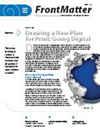通过社区参与和知识共同创造,振兴山区集体资源
IF 1.8
4区 环境科学与生态学
Q4 ENVIRONMENTAL SCIENCES
引用次数: 2
摘要
市场、人口统计和资源使用方面正在发生的全球和大规模变化正在影响山区人民和地区。几个世纪以来,山区的资源一直通过基于社区的资源管理系统进行管理,确保了对资源的管理和地方决策。由于这些系统对山区社会的重要性,有必要了解全球变化对当地的影响,并重新配置基于社区的资源管理,以满足当地需求,同时应对全球挑战。变化包括生物多样性丧失和气候危机,以及社会和经济差距的扩大。关于知识共同创造在CRM创新过程中的作用的研究,以应对山区社会生态系统的持续变化,目前尚缺乏。本研究旨在探索使CRM能够促进可持续发展和繁荣社区的重组。该研究的重点是促进社区创业的干预措施,以振兴意大利北部2个山区社区的集体资源。我们采用了跨学科的方法和研究行动方法来共同设计干预措施和研究。使用定性内容分析方法收集和分析来自焦点小组、调查、参与活动、访谈和参与者观察的数据。结果表明,CRM中正在出现的重组包括对集体资源的新价值观和使用的认可、对新利益相关者的包容以及组织模式的创新,将视角从资源管理转移到资源治理。该研究建议在推动创新和加剧权力失衡之间取得平衡。重要的是要注意过程的包容性,避免资源的过度商品化。本文章由计算机程序翻译,如有差异,请以英文原文为准。
Revitalizing Collective Resources in Mountain Areas Through Community Engagement and Knowledge Cocreation
The ongoing global and large-scale changes in markets, demographics, and use of resources are impacting mountain peoples and regions. In mountain areas, resources have been governed through community-based systems for resource management for centuries, ensuring stewardship and local decision-making over the resources. Due to the importance of such systems to mountain societies, there is a need to understand local effects of global changes and reconfigure community-based resource management (CRM) to meet local needs while tackling global challenges. Changes include biodiversity loss and the climate crisis, as well as increasing social and economic disparities. Studies on the role of knowledge cocreation in the process of CRM innovation in response to ongoing changes in mountain social–ecological systems are missing. This study aimed to explore the reconfigurations that enable CRM to foster sustainable development and thriving communities. The study focused on an intervention promoting community entrepreneurship in community-based tourism for the revitalization of collective resources in 2 mountain communities in Northern Italy. We adopted a transdisciplinary approach and a research action methodology to codesign the interventions and research. Data from focus groups, a survey, participatory activities, interviews, and participant observation were collected and analyzed using a qualitative content analysis method. Results show that emerging reconfigurations in CRM include recognition of new values and uses of collective resources, inclusion of new stakeholders, and innovation of the organizational model, shifting the perspective from resource management to resource governance. The study recommends striking a balance between pushing innovation and increasing power imbalances. It is important to pay attention to the inclusivity of the process and to avoid excessive commodification of resources.
求助全文
通过发布文献求助,成功后即可免费获取论文全文。
去求助
来源期刊
CiteScore
3.10
自引率
18.80%
发文量
36
审稿时长
4.5 months
期刊介绍:
MRD features three peer-reviewed sections: MountainDevelopment, which contains “Transformation Knowledge,” MountainResearch, which contains “Systems Knowledge,” and MountainAgenda, which contains “Target Knowledge.” In addition, the MountainPlatform section offers International Mountain Society members an opportunity to convey information about their mountain initiatives and priorities; and the MountainMedia section presents reviews of recent publications on mountains and mountain development.
Key research and development fields:
-Society and culture-
Policy, politics, and institutions-
Economy-
Bio- and geophysical environment-
Ecosystems and cycles-
Environmental risks-
Resource and land use-
Energy, infrastructure, and services-
Methods and theories-
Regions

 求助内容:
求助内容: 应助结果提醒方式:
应助结果提醒方式:


